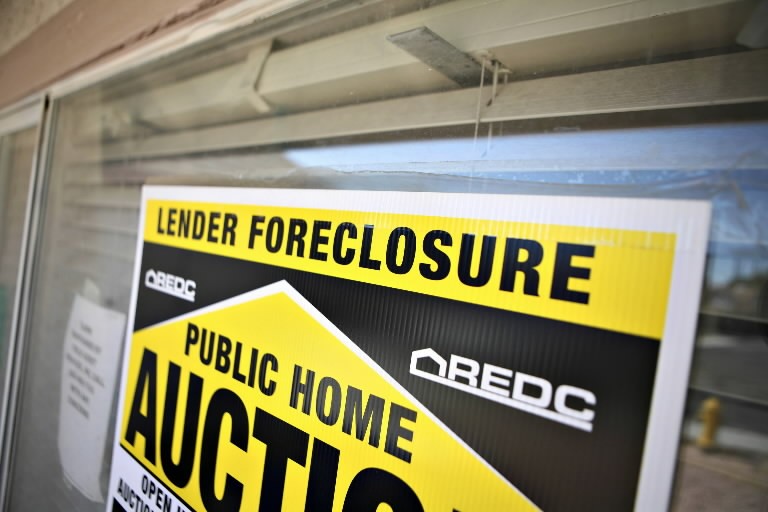Burdens of buying foreclosures at auction
Post on: 28 Сентябрь, 2015 No Comment

Highlights
- The process has plenty of snags to snare the unwary foreclosure buyer.
- The condition of a foreclosed home is a mystery; it could be plumbing-free.
- Consider the time and expense of repairing a handyman’s special.
An expert’s single word of advice for folks who dream of buying a foreclosed house at auction. Don’t.
If buying a house is like navigating an obstacle course, then buying a foreclosure is like crossing a minefield. Make sure your eyes are open and you’re educated (about the process), says Hamilton, who is the National Association of Realtors vice president for the region of California, Hawaii and Guam.
Many ways to mess up
Buying foreclosures at auction is full of traps for the unwary, Hamilton says. First of all, you have to pay cash. And you’re paying for all of the loans, back interest, taxes and attorney’s fees on the property. So if the house is worth $300,000, the opening bid could actually be $400,000. By the time you outbid everyone, you could be paying a lot more than that.
However, if the homeowner files bankruptcy on the day of the auction, the lender will take the house back. You won’t get your money back right away, and if you really want the house you’ll have to bid on it again at another auction.
You can buy title insurance for these foreclosures. But it won’t protect you from liens with the Internal Revenue Service. And any spousal or child support that wasn’t paid by the previous owner will go against the property.
If you want to get rid of the liens, you’ll have to pay the whole thing off or negotiate with the lien holders to see if they’ll accept a reduced payoff. Sometimes they will, says Elizabeth Weintraub, a broker at Lyon Real Estate in Sacramento, Calif. and the homebuying and selling guide for About.com.
Foreclosures are available in various formats. In judicial foreclosure states, foreclosures are auctioned off at the courthouse after the judge rules in favor of the lender. In nonjudicial foreclosure states, the auction is handled by a trustee instead of a judge. For buyers, the process is the same, Hamilton says.
You can buy a preforeclosure in a short sale or a foreclosure from the bank after the process is over. Buying from the bank is similar to buying a house that’s not a foreclosure. You can get title insurance and you won’t have to worry about liens or public debts on the property or people living there, Hamilton says.

A perfect house for stargazers
Even if you work out those issues, you don’t know the condition of the property. People could still be living there. They can file bankruptcy to forestall the eviction process, which can be quite lengthy depending on what state you’re in, Hamilton says.
The house could be gutted — missing copper and plumbing fixtures, or even roofless, Weintraub says.
I don’t care what kind of foreclosure you’re buying, whether it’s from a seller or the bank. Have your own inspection, Hamilton says.
Hamilton and Weintraub agree that the bank isn’t going to tell you all that much about the house. At the least, Hamilton recommends having a meeting with a real estate agent about the inspection and the rest of the process.
You’re going to walk out of there with so much more information than when you walked in, says Hamilton. And it’s free.
Hamilton says a thorough inspection results in a report of 20 to 30 pages. If your inspection uncovers some serious problems, there’s a good chance the bank will fix it. One of Weintraub’s clients got the bank to remedy $15,000 worth of termite damage. But the bank won’t care about a leaky pipe or a broken dishwasher, Weintraub says.
Who will fix the problems?
Ask yourself if you have the money, time, patience and support from the people around you to repair any problems with the house. You need to be realistic about those questions. If the answers to any of those questions is ‘no,’ this probably isn’t the house you’re looking for, Hamilton says.
You could still have problems with the house after buying it. That’s why Weintraub recommends getting a home warranty to protect yourself. They are relatively inexpensive if you buy when you open escrow.
Warranties cover plumbing and electrical problems. So if the dishwasher or thermostat breaks, most policies will pay for repair or replacement.
Some warranties cover pre-existing conditions, but most of the time they won’t cover mold or an appliance that didn’t work when you bought the house. Warranties don’t cover the roof or exterior.
Create a news alert for real estate














